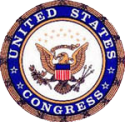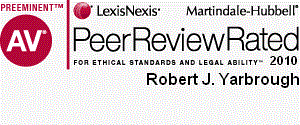Newsletter Issue 75 - May 2015
In this issue:
John Wayne and Duke University
Posting images online
Patent bills in Congress
Ask Dr. Copyright ...
Dear Doc:
What's new in your neck of the woods?
Signed,
Laurent Nom de Plume
Dear Monsieur de Plume:
It's been a slow month for copyright law. Trademarks, however, have
been a hotbed of ridiculosity. Exhibit One: John Wayne's heirs have
filed a law suit against Duke University (which was Trinity College
until 1924 when it was renamed in honor of *cough* tobacco magnate
Washington Duke) over the trademark rights to the word "Duke."
John Wayne was born Marion Robert Morrison in 1907. He was "the
Duke" for reasons lost to the mists of time. John Wayne Enterprises
("JWE", a company run by his family) has filed suit in federal court
in California, asking a judge to find that they can use the word
"Duke" on bourbon, tequila, and scotch without infringing on Duke
University's trademark.
JWE filed applications to use the trademarks "Duke" and "Duke John
Wayne" on alcoholic beverages. According to Ethan Wayne, the actor's
son, his late father had an, "unfulfilled dream of distilling fine
spirits." (On the other hand, the "Doc" has a fulfilled dream of
consuming them, but I digress...) Ethan Wayne is a partner in
Monument Valley Distillers, the company that makes Duke booze. Duke
University responded by filing an objection in the U.S. Patent and
Trademark Office. This gunfight is not new, however. The university
has also tried to block JWE from using "Duke" in connection with
a John Wayne-themed restaurant and celebrity licensing services. The
school claimed in its filing that because the beverages that JWE
sells are, "closely related to goods and services" that bear the
university's mark, granting a trademark registration to JWE would
confuse consumers. (The "Doc" has visited the University, and has
researched it extensively, and can say without fear of contradiction
that there are many students at Duke University who also consume
large volumes of fine, and not-so-fine spirits, and who, as a
result, are pretty confused much of the time.)
"Duke University is not and never has been in the business of
producing, marketing, distributing, or selling alcohol," stated JWE
in its complaint. "On information and belief, the actual and
potential customer base of Duke University is vastly different from
the customer base of JWE." (Again, the "Doc" asks, have they NEVER
been on a college campus on a weekend???) JWE concedes the
University uses the "Duke" mark "in connection with the sale of its
university-related products and services." But, they say, "Duke
University does not own the word Duke in all contexts for all
purposes."
The USPTO database lists 292 registered trademarks that use the word
"Duke". Among these are "Daisy Dukes", "Honeydukes", "Duke Nukem",
"The Royal Foundation of the Duke and Duchess of Cambridge and
Prince Harry", "Duke Kahanamoku" (surf's up, dude!), "Duke
Ellington", "Randolph Duke" (orange juice, anyone?), and "The Dukes
of Hazzard". Where will it all end? The "Doc" is clueless, but hopes
that the parties can just decide to have a party, invite Wills,
Cathy, Harry, and Pippa (especially Pippa), serve Duke bourbon at
Duke University, and bury the tomahawk.
Confused? Ask the attorneys at LW&H to explain it to you (especially
the Daisy Dukes) since they seem to love disputes over trademark
rights, and all other forms of what they humorously refer to
as "intellectual" property. Until next month, the "Doc" urges you to
trademark responsibly. Friends don't let friends brand confusingly.
11 Do's and Don'ts When Posting Images Online

There are many misconceptions about posting images on web sites
and social media. They range from believing everything online is
free-for-the-taking to assuming that if you give attribution of
ownership to an image, you're not infringing someone's copyright.
These assumptions are just plain wrong. Just ask anybody who's
received a cease and desist letter and ended up paying thousands of
dollars for what they believed was innocent conduct. The following
is not a primer on copyright law but just a few principles that you
should keep in mind when you're posting to Facebook, Instagram,
other social media, or your web site.
1. DO post your own pictures.
Let's begin the discussion with a basic principle: If you snapped
the picture yourself it's generally yours and you're free to do what
your want with it. Post away!
2. DO post "public domain" images.
Did you know that there are some great sources of free media files?
Repositories, such as Wikimedia Commons, offer public domain or
freely licensed images. Some images are still subject to a license,
which have attribution or other requirements. Check the license
before you post one of these images.
3. DO link to images that you do not own.
The Internet is all about connectivity and linking. If you come
across an image you would like your friends to see, get permission
from the owner of the image to post it on your social media. If you
can't get permission, post a link.
4. DO license images that you don't own.
If you find a commercial image you like and you want to post it on
social media, don's steal it; license it. A license is an agreement
between you and copyright owner that gives you the right to display
an image that does not belong to you. The catch is that you will in
many cases have to pay someone for the license.
5. DO the research before you post.
So you've found an image you want to post on social media. You can't
identify the owner. How do you determine the source? Unfortunately,
it's not easy. A Google Images search is a good place to start.
Remember, it's better to be safe than sorry, so if you can't
determine the source, don't post it, link to it instead.
6. DON'T believe people who tell you that everything on the Internet
is free for the taking.
Nothing in the law - copyright or other law - says you abandon your
rights in copyright if you post an image on the Internet. Granted,
the rights may be more difficult to police but they still belong to
the author. And, just for your information, rights in copyright
consist of the right to make copies, to make derivative works, and
the rights to distribute, perform, and display the work.
7. DON'T believe you won't suffer any consequences if you disregard
the advise in this column.
Now that you understand that nothing is free, before you post that
beautiful image of a sunset on your Facebook page, make sure you
have the rights. If you don't, the author or creator of the work has
the right to send you a cease and desist letter because you are
infringing her copyright. A cease and desist letter essentially
says, "stop and take it down or I'll sue". Okay, so you don't think
it's worth while to send you a cease and desist letter, after all
its only one image and it's just little you who is posting it. Don't
bet on it. Copyright law makes it worthwhile to sue by penalizing
infringers with statutory damages (i.e., damages that are not tied
to actual damages) and attorneys fees (and lawyers can be
expensive)!
8. DON'T rely on "attribution" to save you.
Some people think that it's alright to post images that belong to
someone else if you attribute their ownership (of course, this
assumes that you know who owns it). Sorry, but copyright law says
that although an author has a right to proper attribution, it does
not say that simply identifying the author relieves you from the
obligation to obtain the right (i.e., a license) to display her
work.
9. DON'T use stock images unless you have paid for them under a
valid license.
Companies like Getty Images and iStockPhoto are in the business of
selling photographs. If you use one of their photos make sure you
have license otherwise you risk receiving a threatening "nastygram."
How would they know? Many stock and other commercially sold images
have embedded watermarks or "fingerprints" that special software can
detect. Some lawyers have created a business out of crawling the web
looking for stolen images and sending cease and desist letters.
Beware!
10. Fair Use is hard to predict; DO ask a lawyer before assuming
that your activities are protected.
For purposes of "criticism, comment, news reporting,
teaching...,scholarship, or research" you can use images belonging
to others without securing their permission. This is called "fair
use." Be careful though, fair use is subject to many limitations
including the amount and substantiality of what you're copying, the
purpose, and whether you are benefitting financially from the work.
There is a vast body of law related to determining fair use so its
wildly unpredictable, and it's expensive to guess wrong. Best to see
a lawyer who specializes in this area of the law before you post an
image and claim it's fair use.
11. DON'T panic if you receive a cease and desist letter.
No need to panic if you receive a cease and desist letter. Many
times, copyright owners will settle infringement claims for modest
amounts and many times they will be willing to negotiate. If you
have concerns, hire a lawyer.
"They're baaack..."*

*Heather Michele O'Rourke, 'Poltergeist II,' 1986
Congress, that is. Several patent bills are pending, most of which
will make it more risky and expensive to enforce a patent or defend
against a patent infringement action in court. These bills
represent the second half of the America Invents Act, which changed
the patent landscape in 2011. The major House and Senate bills
have substantial support in both parties and the President has
stated that he will sign whatever patent bill Congress can pass.
The opposition is also organized this time, so there should be an
actual debate.
Of course, the patent bills are not yet law and will not become law
until passed by both the House and Senate and signed by the
President.
The following are some of the major changes in the bills.
a. The bills include 'loser pays' provisions that would
substantially lower the standards for shifting attorney's fees to
the losing party in patent litigation. Under the new bills, the
loser would be liable for ALL of the winner's attorney's fees if the
loser takes a litigation position or engages in conduct that is 'not
objectively reasonable.' Under the bills, the stakes of patent
litigation will become even higher. The attorney's fees provisions
apparently apply to both infringement litigation and to declaratory
judgment litigation by an infringer against a patent owner to
determine whether a patent is valid.
Under current law, the loser in patent litigation can be tagged for
the winning side's attorney's fees in 'exceptional' circumstances in
the discretion of the trial judge when the loser engages in bad
conduct or takes meritless litigation positions. Recent Supreme
Court decisions have made attorney's fees in patent litigation more
widely available; however, fee awards have been limited to the
winner's attorney's fees caused by the loser's bad behavior. If the
bills become law, the fees are not so limited and the risks of
patent litigation are substantially increased.
b. The bills would require heightened pleading standards to
file a patent infringement lawsuit. The pending bills would require
that persons asserting patent rights identify specific patents,
specific claims, specific product, and identify how the specific
products infringe each of the elements of each claim. This is a
much higher pleading standard than is required in other litigation
in the Federal courts.
For you lawyers, the bills would effectively change U.S. patent
pleading in court from 'notice pleading' to 'fact pleading.'
c. Patent demand letters ('cease and desist' letters) will
become effectively extinct if the bills become law. The
requirements for demand letters will be the same as for filing a
lawsuit in Federal court. Under one pending bill, failure to
include all of the required information in a demand letter can
invalidate the patent. If the bills become law and you have a
patent to enforce, the first things that you will do is to
investigate the infringement and file a lawsuit in Federal court.
You will not breathe a word to the defendant before filing suit. If
you are infringing someone else's patent, then the first notice that
you will have is when the U.S. marshal knocks on your door and
places a summons in your hand.
d. The bills include a 'customer stay.' If the end user
(the customer) uses an infringing product and is sued for patent
infringement, the litigation against the customer can be stopped
temporarily while other litigation against the manufacturer of the
product continues, provided that both the customer and manufacturer
agree. Matters decided in the litigation against the manufacturer
would then be binding on the customer. Common issues (is the patent
valid, does the product infringe the patent) need only be decided by
a court once and not many times in separate lawsuits.
The 'customer stay' provisions have drawn a lot of sound and fury
from commenters, arguing that the customer may be a tech giant and
the manufacturer may be a mom-and-pop operation in China and outside
the reach of the U.S. courts. This author does not see the problem,
since the tech giant customer can choose not to agree to a stay and
because the stay can only occur if the manufacturer is available in
U.S. court.
The bills include many other provisions, including provisions aimed
specifically at companies that are in the business of owning and
enforcing patents, commonly referred to as patent 'trolls.'
In future newsletters we will take a closer look at the important
parts of the new legislation as it moves through Congress.

